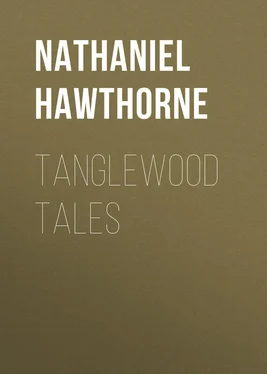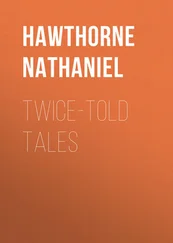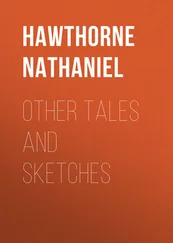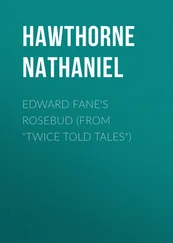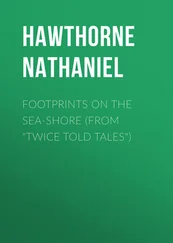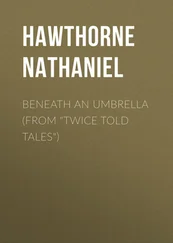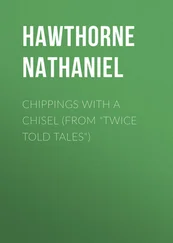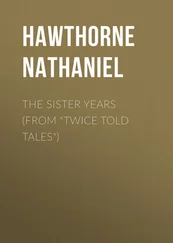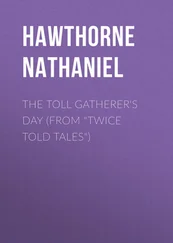Nathaniel Hawthorne - Tanglewood Tales
Здесь есть возможность читать онлайн «Nathaniel Hawthorne - Tanglewood Tales» — ознакомительный отрывок электронной книги совершенно бесплатно, а после прочтения отрывка купить полную версию. В некоторых случаях можно слушать аудио, скачать через торрент в формате fb2 и присутствует краткое содержание. Жанр: foreign_prose, на английском языке. Описание произведения, (предисловие) а так же отзывы посетителей доступны на портале библиотеки ЛибКат.
- Название:Tanglewood Tales
- Автор:
- Жанр:
- Год:неизвестен
- ISBN:нет данных
- Рейтинг книги:5 / 5. Голосов: 1
-
Избранное:Добавить в избранное
- Отзывы:
-
Ваша оценка:
- 100
- 1
- 2
- 3
- 4
- 5
Tanglewood Tales: краткое содержание, описание и аннотация
Предлагаем к чтению аннотацию, описание, краткое содержание или предисловие (зависит от того, что написал сам автор книги «Tanglewood Tales»). Если вы не нашли необходимую информацию о книге — напишите в комментариях, мы постараемся отыскать её.
Tanglewood Tales — читать онлайн ознакомительный отрывок
Ниже представлен текст книги, разбитый по страницам. Система сохранения места последней прочитанной страницы, позволяет с удобством читать онлайн бесплатно книгу «Tanglewood Tales», без необходимости каждый раз заново искать на чём Вы остановились. Поставьте закладку, и сможете в любой момент перейти на страницу, на которой закончили чтение.
Интервал:
Закладка:
"We are now," said Ariadne, "in the famous labyrinth which Dædalus built before he made himself a pair of wings, and flew away from our island like a bird. That Dædalus was a very cunning workman; but of all his artful contrivances, this labyrinth is the most wondrous. Were we to take but a few steps from the doorway, we might wander about all our lifetime, and never find it again. Yet in the very center of this labyrinth is the Minotaur; and, Theseus, you must go thither to seek him.
"But how shall I ever find him," asked Theseus, "if the labyrinth so bewilders me as you say it will?"
Just as he spoke, they heard a rough and very disagreeable roar, which greatly resembled the lowing of a fierce bull, but yet had some sort of sound like the human voice. Theseus even fancied a rude articulation in it, as if the creature that uttered it were trying to shape his hoarse breath into words. It was at some distance, however, and he really could not tell whether it sounded most like a bull's roar or a man's harsh voice.
"That is the Minotaur's noise," whispered Ariadne, closely grasping the hand of Theseus, and pressing one of her own hands to her heart, which was all in a tremble. "You must follow that sound through the windings of the labyrinth, and, by and by, you will find him. Stay! take the end of this silken string; I will hold the other end; and then, if you win the victory, it will lead you again to this spot. Farewell, brave Theseus."
So the young man took the end of the silken string in his left hand, and his gold-hilted sword ready drawn from its scabbard, in the other, and trod boldly into the inscrutable labyrinth. How this labyrinth was built is more than I can tell you. But so cunningly contrived a mizmaze was never seen in the world, before nor since. There can be nothing else so intricate, unless it were the brain of a man like Dædalus, who planned it, or the heart of any ordinary man; which last, to be sure, is ten times as great a mystery as the labyrinth of Crete. Theseus had not taken five steps before he lost sight of Ariadne; and in five more his head was growing dizzy. But still he went on, now creeping through a low arch, now ascending a flight of steps, now in one crooked passage, and now in another, with here a door opening before him, and there one banging behind, until it really seemed as if the walls spun round, and whirled him along with them. And all the while, through these hollow avenues, now nearer, now farther off again, resounded the cry of the Minotaur; and the sound was so fierce, so cruel, so ugly, so like a bull's roar, and withal so like a human voice, and yet like neither of them, that the brave heart of Theseus grew sterner and angrier at every step, for he felt it an insult to the moon and sky, and to our affectionate and simple Mother Earth, that such a monster should have the audacity to exist.
As he passed onward, the clouds gathered over the moon, and the labyrinth grew so dusky that Theseus could no longer discern the bewilderment through which he was passing. He would have felt quite lost, and utterly hopeless of ever again walking in a straight path, if, every little while, he had not been conscious of a gentle twitch at the silken cord. Then he knew that the tender-hearted Ariadne was still holding the other end, and that she was fearing for him, and hoping for him, and giving him just as much of her sympathy as if she were close by his side. O, indeed, I can assure you, there was a vast deal of human sympathy running along that slender thread of silk. But still he followed the dreadful roar of the Minotaur, which now grew louder and louder, and finally so very loud that Theseus fully expected to come close upon him, at every new zigzag and wriggle of the path. And at last, in an open space, at the very center of the labyrinth, he did discern the hideous creature.
Sure enough, what an ugly monster it was! Only his horned head belonged to a bull; and yet, somehow or other, he looked like a bull all over, preposterously waddling on his hind legs; or if you happened to view him in another way, he seemed wholly a man, and all the more monstrous for being so. And there he was, the wretched thing, with no society, no companion, no kind of a mate, living only to do mischief, and incapable of knowing what affection means. Theseus hated him, and shuddered at him, and yet could not but be sensible of some sort of pity; and all the more, the uglier and more detestable the creature was. For he kept striding to and fro, in a solitary frenzy of rage, continually emitting a hoarse roar, which was oddly mixed up with half-shaped words; and, after listening a while, Theseus understood that the Minotaur was saying to himself how miserable he was, and how hungry, and how he hated everybody, and how he longed to eat up the human race alive.
Ah, the bull-headed villain! And O, my good little people, you will perhaps see, one of these days, as I do now, that every human being who suffers anything evil to get into his nature, or to remain there, is a kind of Minotaur, an enemy of his fellow-creatures, and separated from all good companionship, as this poor monster was.
Was Theseus afraid? By no means, my dear auditors. What! a hero like Theseus afraid! Not had the Minotaur had twenty bull heads instead of one. Bold as he was, however, I rather fancy that it strengthened his valiant heart, just at this crisis, to feel a tremulous twitch at the silken cord, which he was still holding in his left hand. It was as if Ariadne were giving him all her might and courage; and, much as he already had, and little as she had to give, it made his own seem twice as much. And to confess the honest truth, he needed the whole; for now the Minotaur, turning suddenly about, caught sight of Theseus, and instantly lowered his horribly sharp horns, exactly as a mad bull does when he means to rush against an enemy. At the same time, he belched forth a tremendous roar, in which there was something like the words of human language, but all disjointed and shaken to pieces by passing through the gullet of a miserably enraged brute.
Theseus could only guess what the creature intended to say, and that rather by his gestures than his words; for the Minotaur's horns were sharper than his wits, and of a great deal more service to him than his tongue. But probably this was the sense of what he uttered: —
"Ah, wretch of a human being! I'll stick my horns through you, and toss you fifty feet high, and eat you up the moment you come down."
"Come on, then, and try it!" was all that Theseus deigned to reply; for he was far too magnanimous to assault his enemy with insolent language.
Without more words on either side, there ensued the most awful fight between Theseus and the Minotaur that ever happened beneath the sun or moon. I really know not how it might have turned out, if the monster, in his first headlong rush against Theseus, had not missed him, by a hair's breadth, and broken one of his horns short off against the stone wall. On this mishap, he bellowed so intolerably that a part of the labyrinth tumbled down, and all the inhabitants of Crete mistook the noise for an uncommonly heavy thunder storm. Smarting with the pain, he galloped around the open space in so ridiculous a way that Theseus laughed at it, long afterwards, though not precisely at the moment. After this, the two antagonists stood valiantly up to one another, and fought, sword to horn, for a long while. At last, the Minotaur made a run at Theseus, grazed his left side with his horn, and flung him down; and thinking that he had stabbed him to the heart, he cut a great caper in the air, opened his bull mouth from ear to ear, and prepared to snap his head off. But Theseus by this time had leaped up, and caught the monster off his guard. Fetching a sword stroke at him with all his force, he hit him fair upon the neck, and made his bull head skip six yards from his human body, which fell down flat upon the ground.
Читать дальшеИнтервал:
Закладка:
Похожие книги на «Tanglewood Tales»
Представляем Вашему вниманию похожие книги на «Tanglewood Tales» списком для выбора. Мы отобрали схожую по названию и смыслу литературу в надежде предоставить читателям больше вариантов отыскать новые, интересные, ещё непрочитанные произведения.
Обсуждение, отзывы о книге «Tanglewood Tales» и просто собственные мнения читателей. Оставьте ваши комментарии, напишите, что Вы думаете о произведении, его смысле или главных героях. Укажите что конкретно понравилось, а что нет, и почему Вы так считаете.
